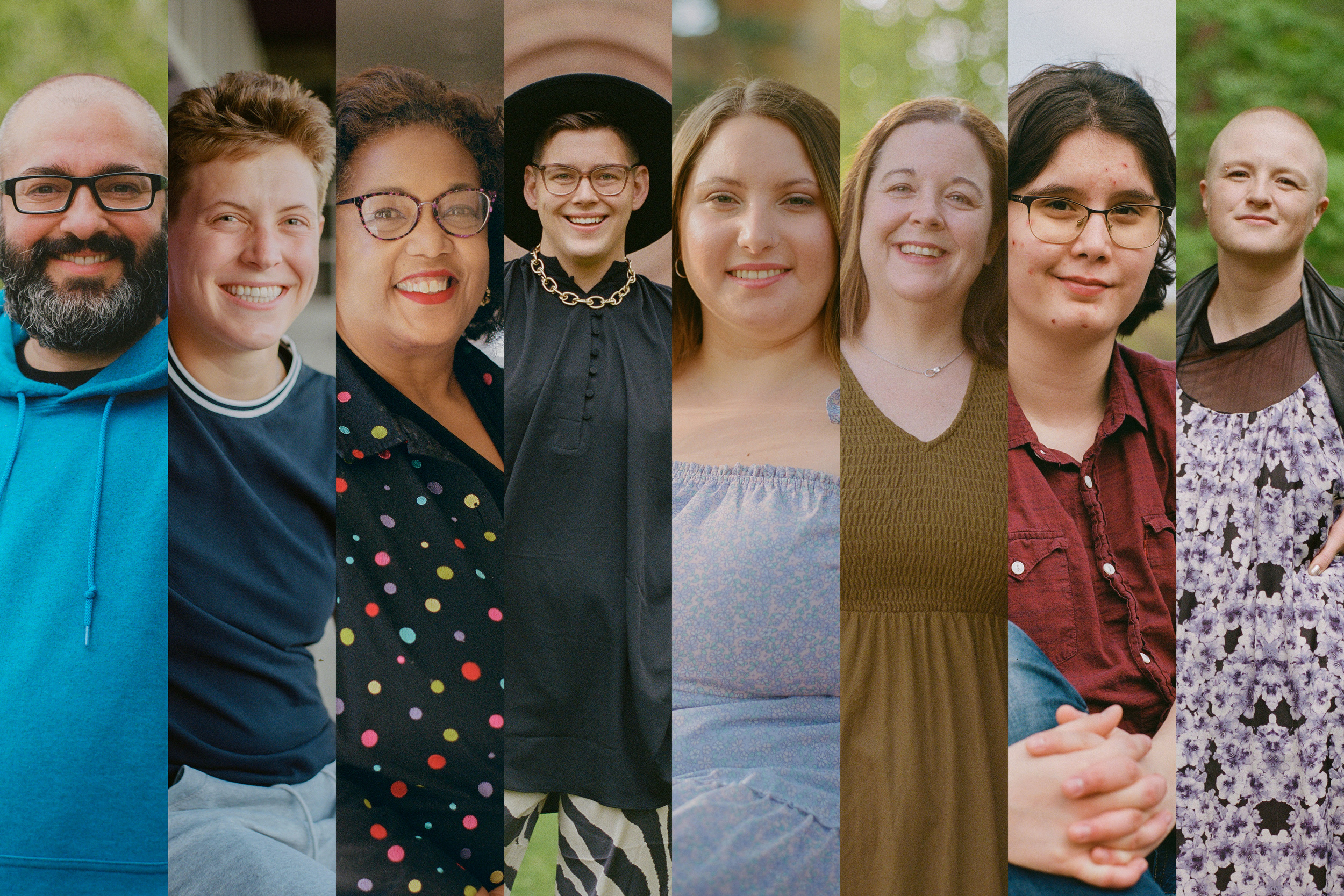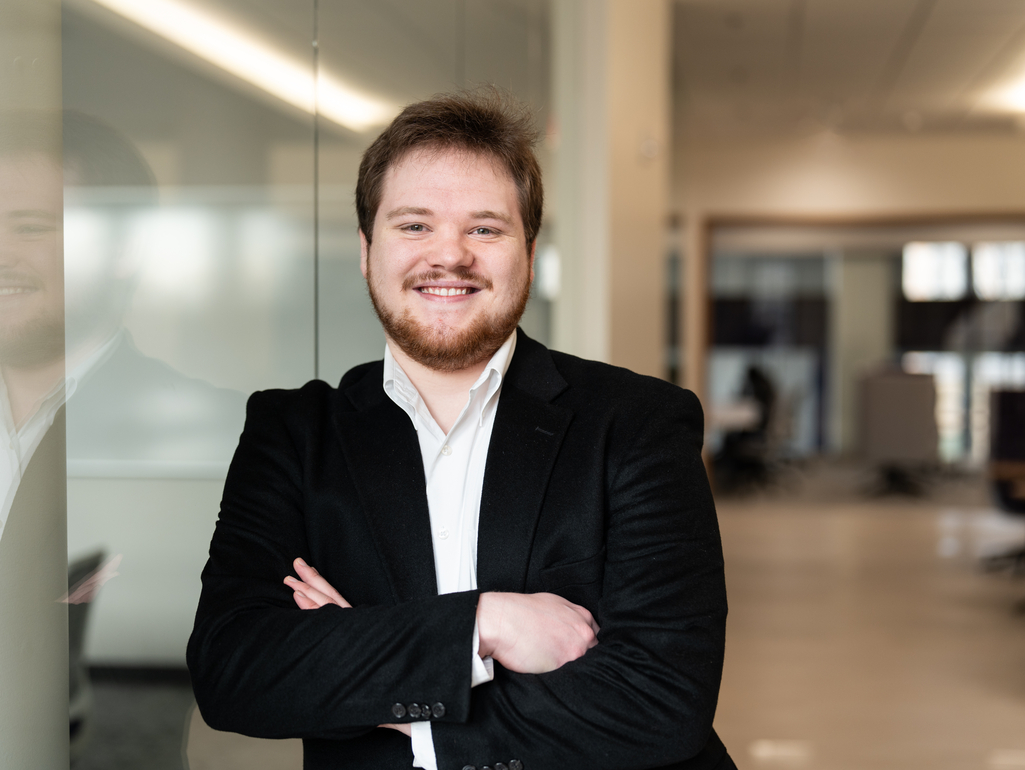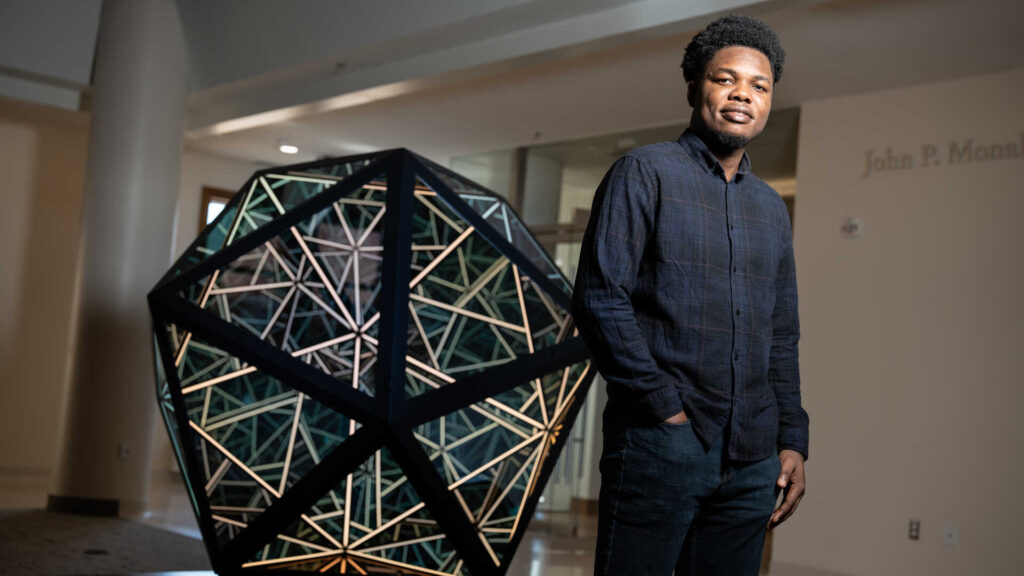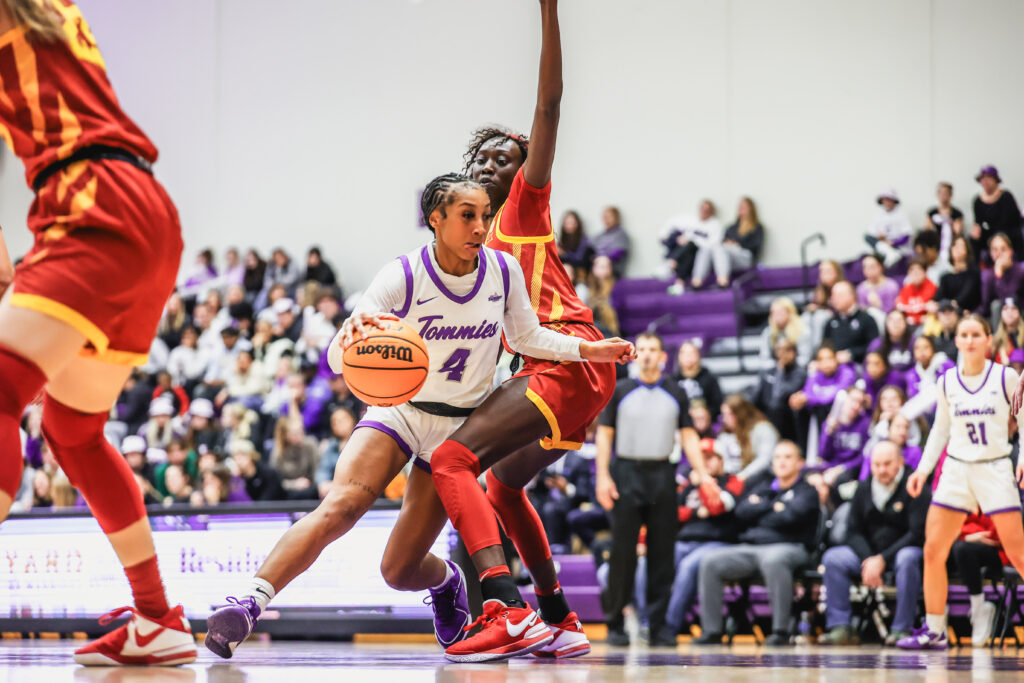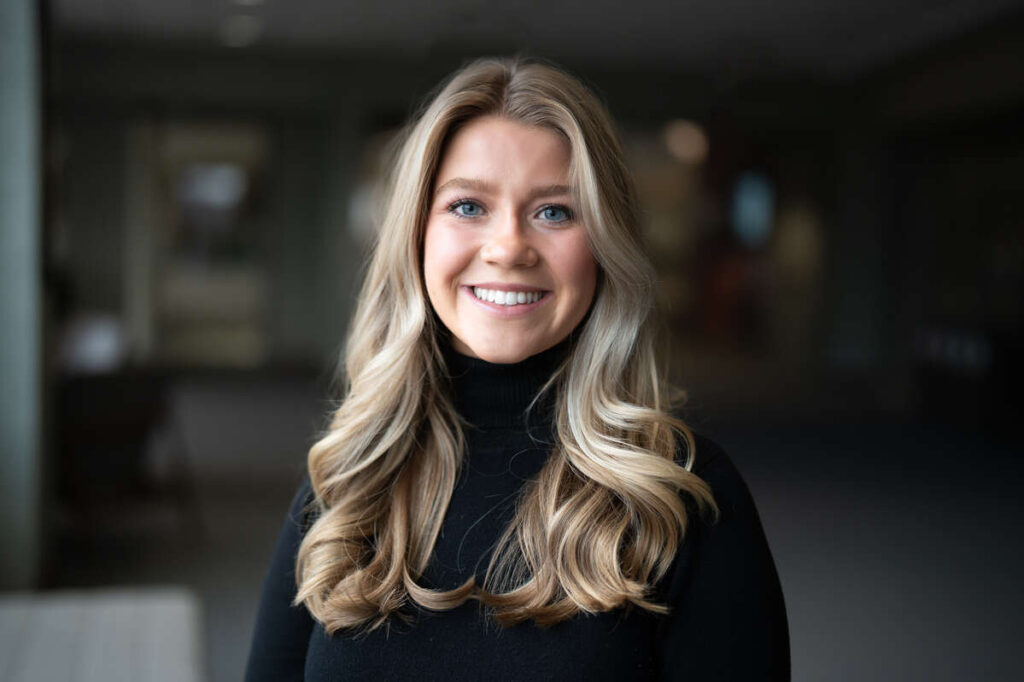As June marks the beginning of many summer celebrations, it is also a month that honors the visibility, dignity and culture of the LGBTQIA+ community.
In honor of Pride Month, staff photographer Liam James Doyle has curated a special edition of “Humans of St. Thomas.” His photo series highlights the experiences of eight valued campus community members – a mix of students, staff and faculty. They all bring unique journeys to the University of St. Thomas in Minnesota, and they all identify as being members or allies of the queer community.
A note from the photographer:
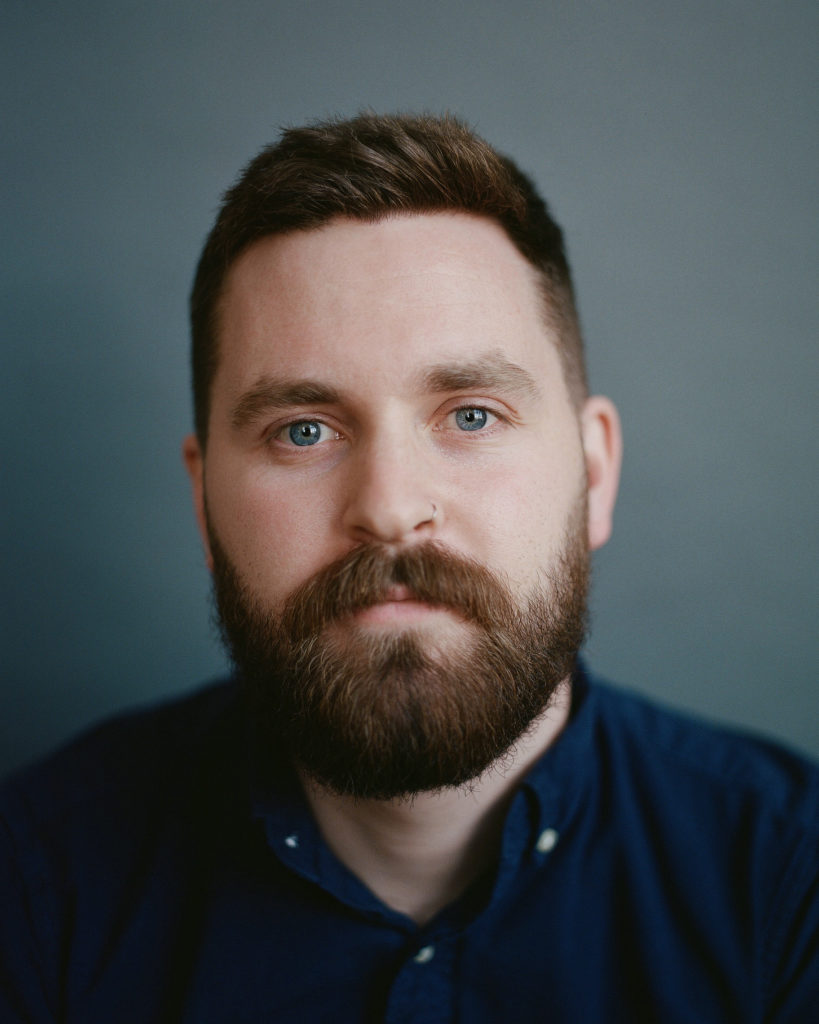
When I began working as staff photographer for St. Thomas, I was overwhelmed by the strong sense of familial community; but as a gay man it wasn’t initially clear to me how or where my queerness fit in to the larger picture of this campus community, or if it fit in at all.
I’ve felt affirmed knowing that St. Thomas has a mission to support its LGBTQIA+ community and a commitment to diversity, equity and inclusion. While this messaging is supportive and resources like the Queer Straight Alliance (QSA) and the LGBTQIA+ Faculty and Staff Association have allowed me to find others like me on campus, I couldn’t help but notice a lack of visibility and representation of queerness on campus.
Seeing this as an opportunity, I set out to capture the humanity of our LGBTQIA+ community at St. Thomas in the most honest and truthful manner I knew how. Through portraiture and interviews, I asked each subject what Pride Month means to them, as well as to reflect on their unique perspective related to the queer experience. I commend these individuals for their vulnerability and bravery in sharing their stories as we dare to be our authentic selves and live in our truth.
Part of that truth is the simple fact that as LGBTQIA+ folks, we are your friends, your siblings, your parents and your children. We are your neighbors, your classmates, your teachers, your fellow alumni and your coworkers. We are a part of the beautiful and diverse fabric that makes up the University of St. Thomas community. We are here, and we have always been here, and that is worth celebrating.
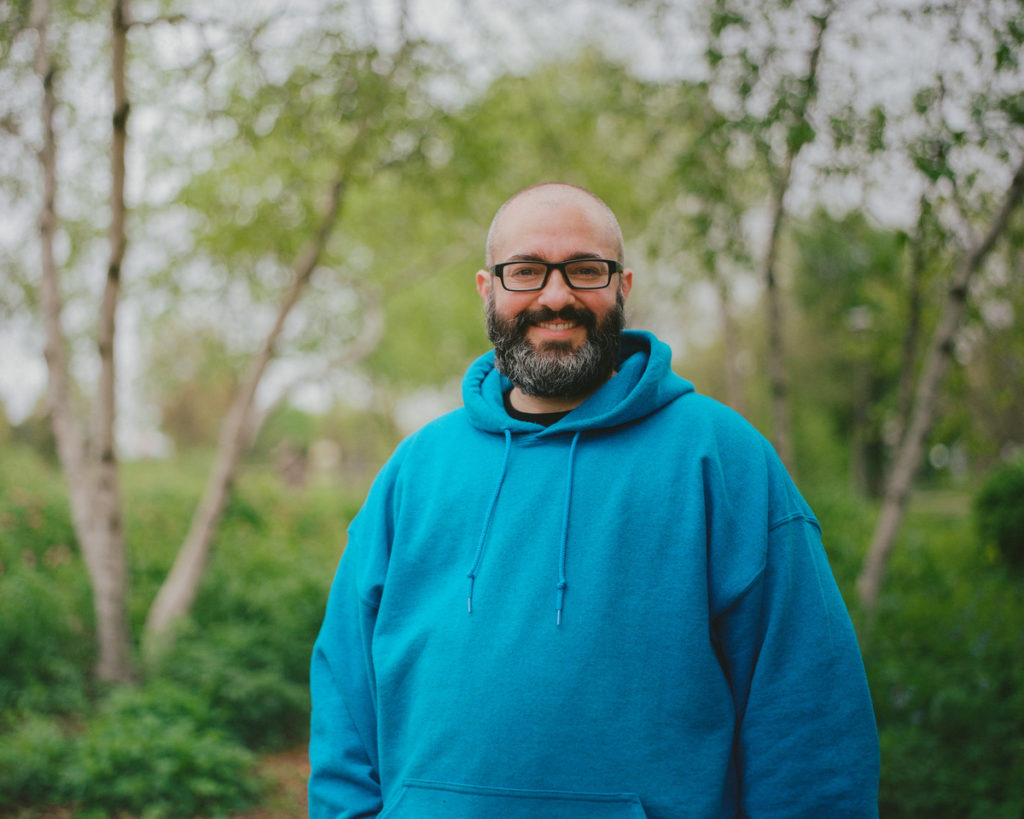
Henry Bishop – he/him, they/them
Administrative Assistant With the School of Law
What does Pride Month mean to you?
For me, pride and visibility, as a queer person, is about self-worth, really, and, finding ways to just embrace the human that I am.
I remember moving to Minneapolis the summer that I turned 21. And I had never lived in a big city before ... I moved here with my best friend from high school who is also queer-identified, and we thought the reflection of queer pride and the Pride Festival was the most amazing thing. There were all these different people showing up in all these different ways. And they were beautiful. And they were, you know, creative and we just felt like we fit in, which was a really novel experience.
We all show up differently, we've all experienced our own complicated journey of emerging into who we are as folks who have identities that don't align with any dominant culture. And it has been a source of healing for me and a source of joy for me too, to be able to embrace my own identity, and the complexity of other queer people's identities.
Reflections on their unique queer experience:
I have a lot of gratitude around, having found ways to articulate my own transgender experience as an identity. My gender experience has helped me see perspectives that I wouldn't have seen otherwise. It’s cliché to say “what doesn’t kill us makes us stronger,” but I do believe I’m a more compassionate person because of the extreme marginalization I’ve witnessed and experienced as a queer and gender-variant person.
I've identified with many of the letters in the "alphabet soup" along the way. And even with sort of those evolutions, for whatever reason, like queerness has been part, like a very strong part of my personal identity, and understanding like, who I am in the matrix of the world.
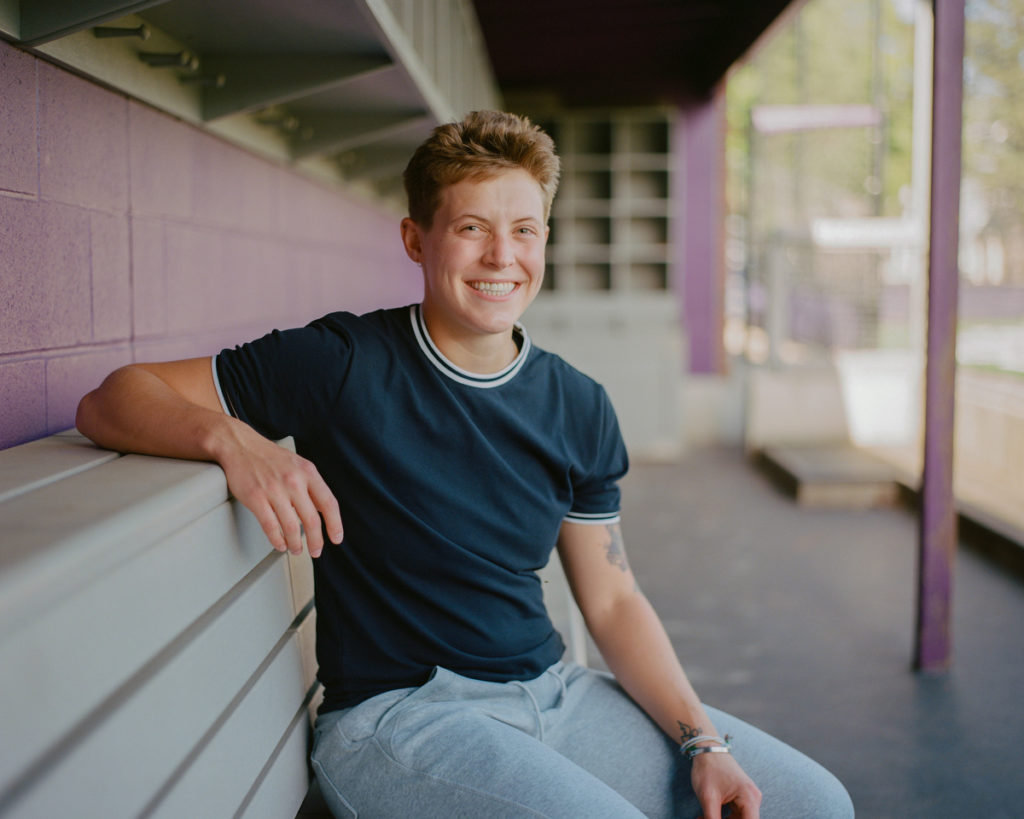
Claire Bentfield – she/her
Student-athlete and Second-Year Studying Mechanical Engineering
What does Pride Month mean to you?
I get excited in Pride Month because it's a month to celebrate who I am as a person, which feels really cool. But honestly, it doesn't feel different day to day from the rest of the days of the year.
Pride Month started with a riot, it wasn't a parade, it was a riot and people of color, trans people of color were the ones leading that. It makes me think that those people are still the people that aren't even accepted into the queer community. We should be celebrating who we all are and what makes us different, and also what is fun, but taking steps to make sure that everybody is included.
Reflections on their unique queer experience as a student-athlete:
It took a while to fit that into the culture on my team because I'm the only out gay person on my team. Like, that's never been the case for me before. It's funny to me that I found home in a place that almost works against that feeling.
I feel very proud to be different. I suppose everybody in their own right isn't like every other person ... But it feels like something that I have that nobody can take away from me. Nobody can change that.
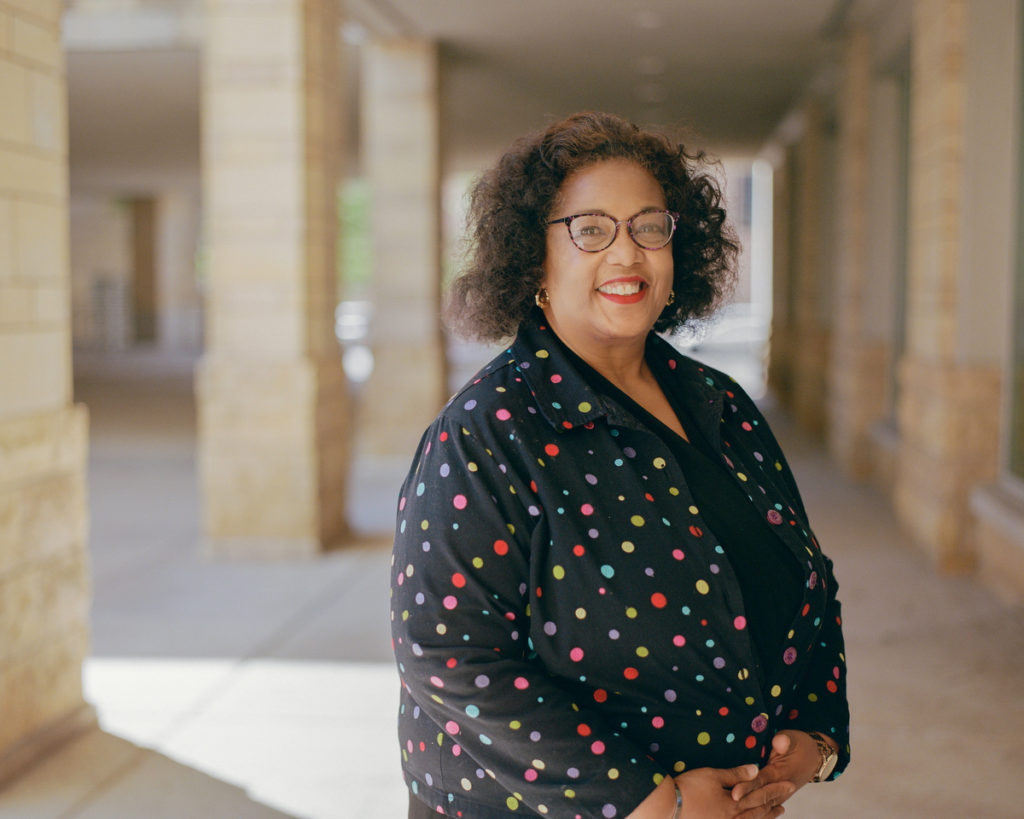
Ea Porter – she/her
Assistant Director of Community Engagement and Recruitment With the School of Education
What does Pride Month mean to you?
Being an ally here at St. Thomas, I'm doing what I can to create safe spaces, whether it's because of race, gender, national origin, first language, or economic status. My focus is to create safe spaces for everybody. In Pride Month, it moves more to specifically focus on LBGTQIA issues.
As a parent, I don't want to make it sound like I see everybody as my kid, but I do see everyone as deserving of safe spaces, regardless of their age. As a parent, I always want the same thing for my kid that I think most parents want for their kids – I want my child to be healthy, happy, safe, and a productive member of society.
Reflections on their experience as an ally:
I'm a parent of a transgender, gender-nonconforming, now young adult. I can't say that I know exactly what somebody else is going through. But I want to be an ear, I want to help. I want to create a safe space and bring some of the knowledge and experience that I have. I want to share that with whomever wants to hear it so that we can be a more welcoming and inclusive environment.
My idea of being a good ally truly is standing alongside, slightly to the behind, but alongside […] so that people know this doesn't only affect those people directly.
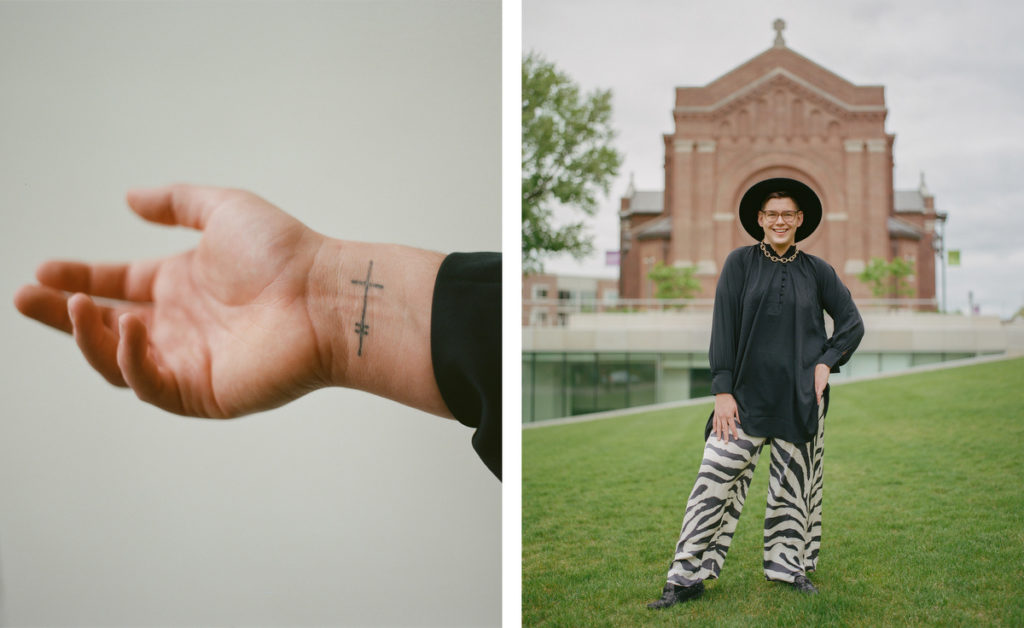
Tony Preston ’19 – he/him, they/them
Liturgy Specialist With Campus Ministry
What does Pride Month mean to you?
For me Pride Month means family. For so many individuals, it is a sad reality that their queer or trans identity has caused them to lose their biological family, so the queer community has become their chosen family, a family that loves and celebrates them for exactly who they are. I am especially excited for this year as we emerge from a global pandemic, to really use this Pride Month as a time to come together and reunite as a community and celebrate our family.
Reflections on their unique queer experience:
Throughout my coming out I relied heavily upon my personal relationship with God. During this time, Psalm 119 became my comfort and refuge; "You created my inmost being, you knit me together in my mother's womb. I praise you because I am fearfully and wonderfully made." These words lead me through some of the hardest and darkest days of my life. This psalm was God's way of telling me that I was not a mistake, nor was I alone during this time of tribulation. Even in the depth of my desolation God was there, using this psalm to whisper in my ear that I was wonderfully made, and I was loved by them more than I could ever comprehend.
Every year as the celebrations for pride begin, I think back on this time, and I remember these words that guided me through these days, and helped me to discover who I was, a beloved child of God, made wonderfully in their image. And that alone is worth celebrating.
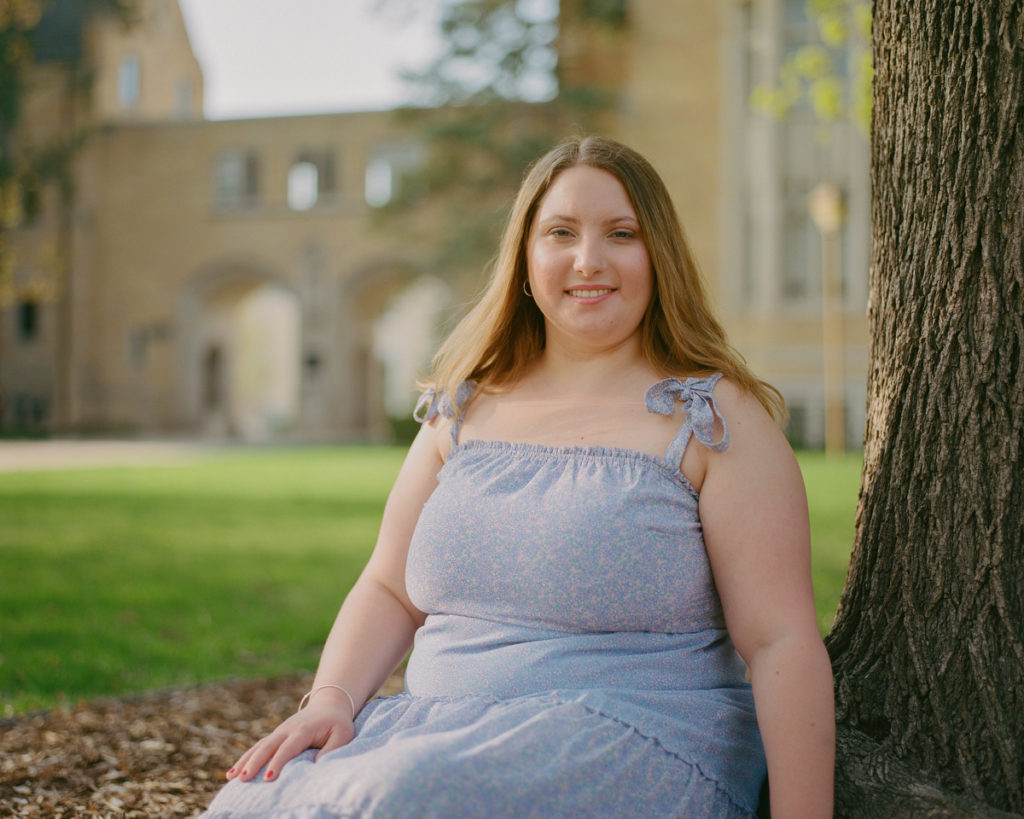
Ciara Ferris – she/her
Second-Year Studying Secondary Education and Social Studies
What does Pride Month mean to you?
I feel like Pride Month is just one of my favorite times of the year, just because I feel like it's time where I can think about how I am bisexual, and how this is me and how it can be accepted in some situations.
This is my first Pride Month after being out to my parents. So, I feel like it's going to be different because I would like to go to pride parades and pride events. I feel like this is just going to be a particularly special one because I don't have to hide anymore.
Reflections on their unique queer experience:
I wish that people could just understand that bisexuality exists. And that it's not just this middle ground before you decide, oh, maybe I'm straight, maybe I'm gay. This is an actual identity that people are and that's not going to change. I feel like people don't understand that's even a possibility and immediately just assume that it's this middle ground.
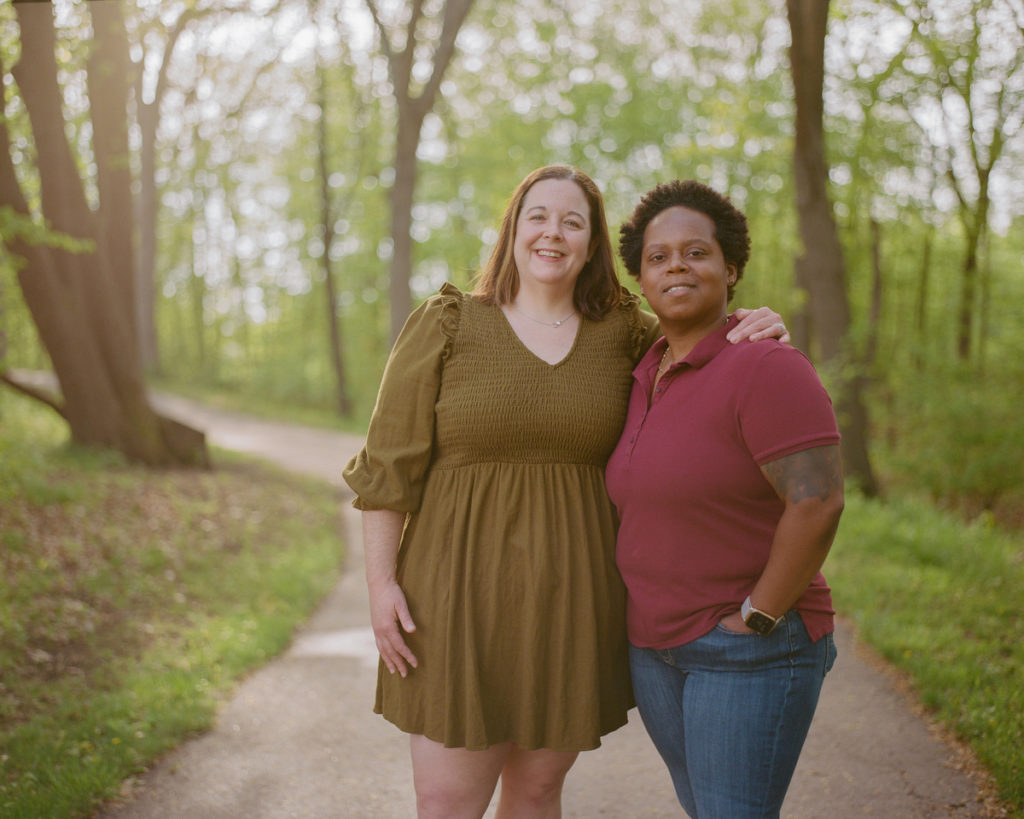
Patricia Maddox – she/her
Assistant Professor of Sociology in the Department of Justice and Society Studies
What does Pride Month mean to you?
I think for me, it's the progress in being able to officially marry the person that I love ... being able to go and legally get married was, I think for me, the biggest joy I could ever have.
When pride rolls around, I'm really grateful. I'm thankful to all of those who fought hard for marriage equality, and thankful for those who you know, lived their lives without it, but still fought for our rights. To get to the point where I am in my life to feel that institutionally supported in my own relationship, I think is awesome. So that's what I would say – pride allows me a time to reflect on my family and be thankful that I don’t have to worry about someone taking it away.
Reflections on their unique queer experience:
As much as I feel affirmed in my communities, we're also a bit of an outcast in our communities. I mean, we're the only gay couple on the block, and pretty much the only gay couple in the residential community that we live in. We're also the only interracial couple on our whole cul-de-sac, too. And, so, it's kind of hard to be the interracial, and the queer couple in spaces.
We're just a couple, a couple with our own personalities, a couple of women trying to make it through life together, right? Dealing with the outside challenges of society has been the hard part.
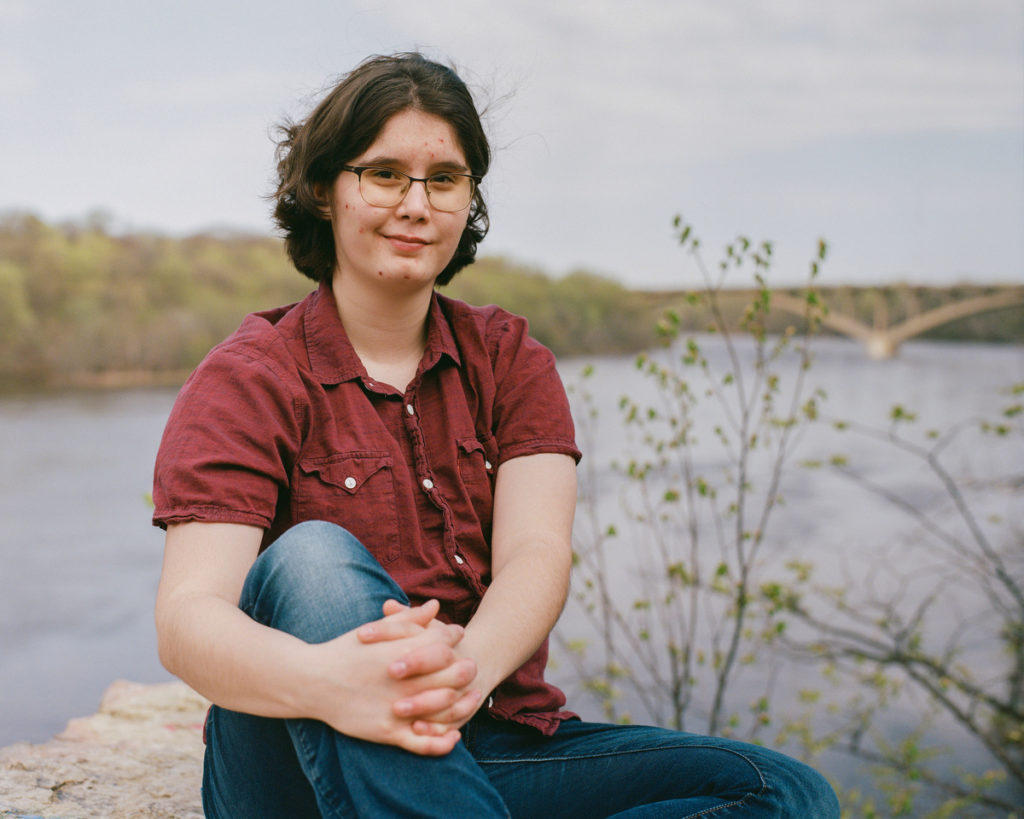
Victoria Kurdyumov – she/her
First-Year Studying Neuroscience
What does Pride Month mean to you?
It was around Pride Month when I came out to my parents. I remember how scary it was […] thankfully, both of my parents are very supportive. And I remember when I first told my mom, she wanted to be accepting, she just didn't know anything. So she went to the library and checked out a bunch of books.
Reflections on their unique queer experience:
I always feel like there's a stereotype that lesbians are either, super masculine, or they're super, super feminine. Which is not necessarily true. I mean, for me, I do kind of express myself more masculine. There's definitely a weird social thing, where, in order to be more accepted in a field, a woman will dress more masculine, to seem like her opinions are, you know, more valid, but at the same time, I'm not hyper feminine. And to me, that's not how I experience my own womanhood. So it's kind of awkward – you get more representation for women, but not the whole spectrum of what you know being a woman is.
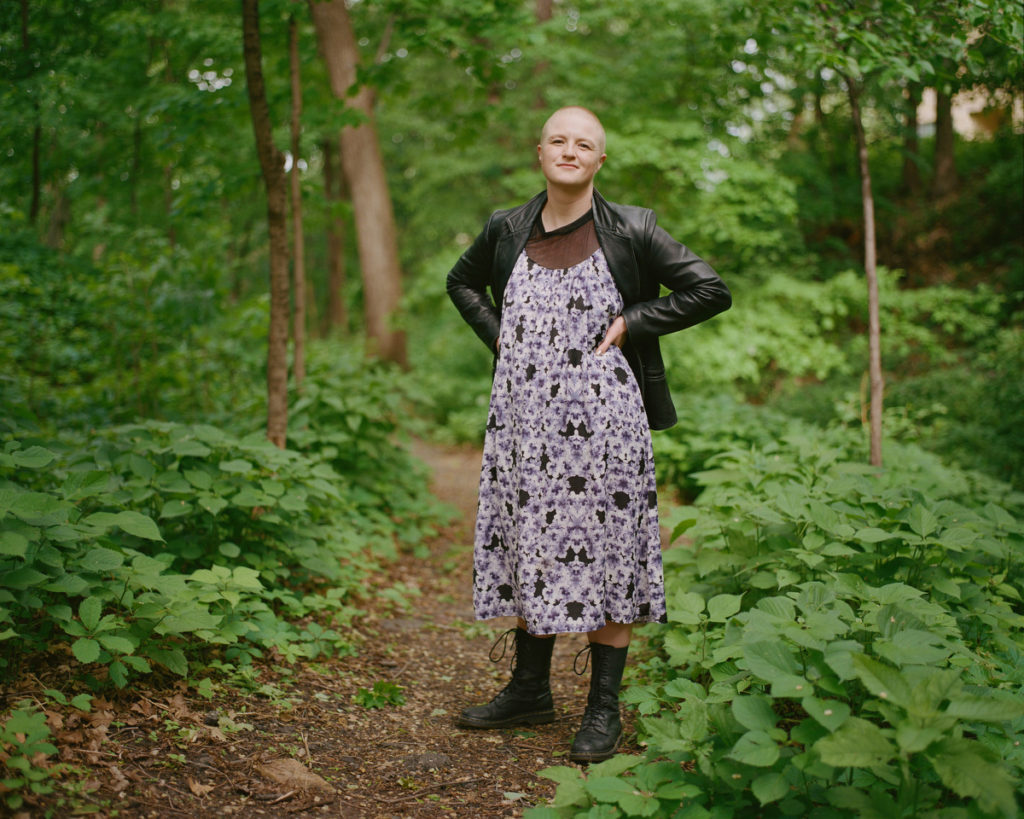
Merrick Borg ’12, ’20 MS – they/them
Data and Insights Analyst With the Marketing, Insights and Communications Department
What does Pride Month mean to you?
When I think of Pride Month, I think of the radical act of queer love and standing up for rights. The reason we celebrate Pride in June is because of Stonewall and how […] that was a really big impetus for a lot of change that came after that and grabbed a lot of national attention. So for me, that's a really important part of pride. I think that the parties are fun. I love to build community with queer people. But I really try to focus on the activism part of it, too.
Reflections on their unique queer experience:
I'm nonbinary. So, I'm already sitting outside of a lot of ideas about what people should be like, or the appropriate way to express yourself. I can be feeling like a man and feeling like a woman at the same time and that's OK, and I can lean into that and that's OK too. Like I can choose and it's actually wonderful to be able to choose.
